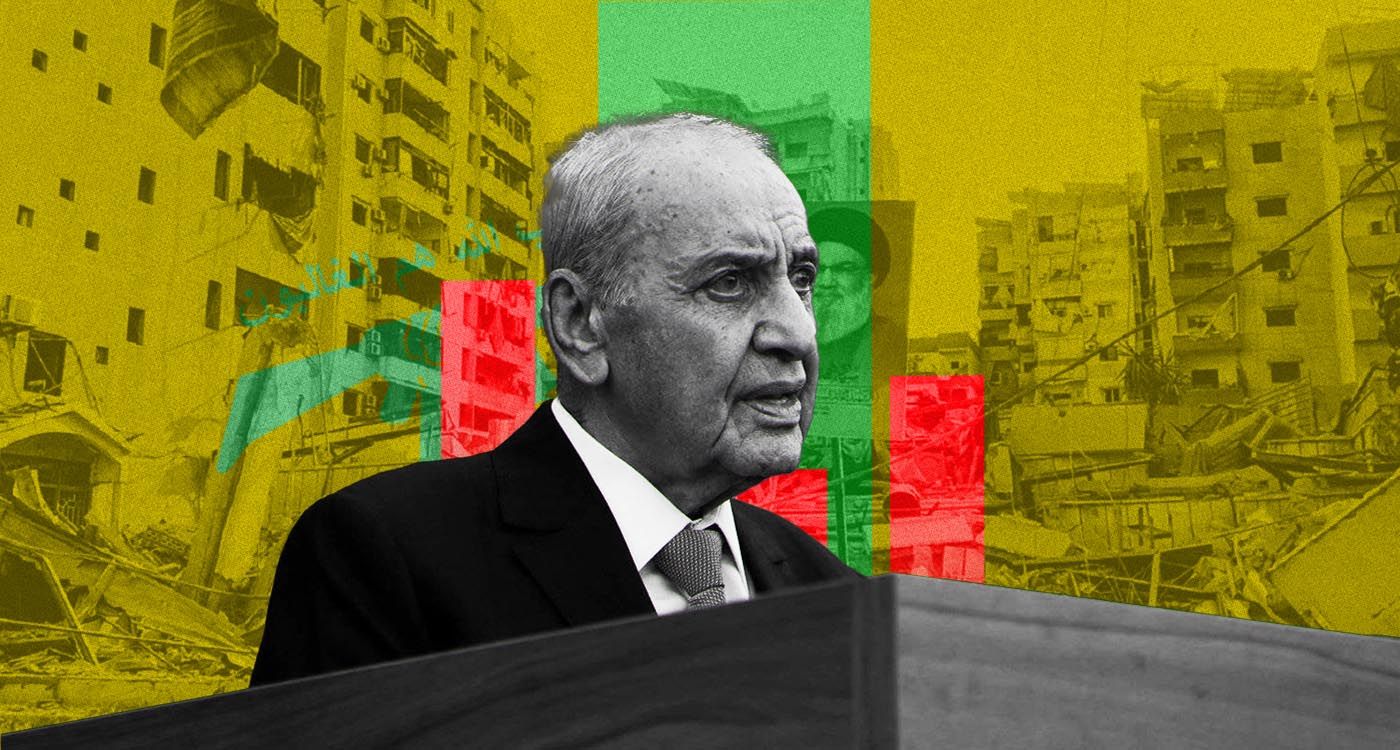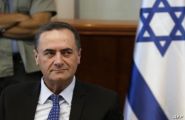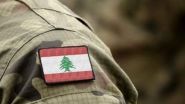
This year, Parliament Speaker Nabih Berri delivered the Independence Day address instead of the traditional speech usually given by the President of the Republic. Meanwhile, Hezbollah announced it had held a military parade to mark the occasion—but in its own way. So, has Lebanon become Hezb’s state? And has Berri effectively become the president of this state?
Lebanon’s 81st Independence Day passed without a president. For the third consecutive year, this key officeholder was absent from the celebrations, following the end of Michel Aoun’s term in late October 2022. This year, Parliament Speaker Nabih Berri delivered the Independence Day address, stepping in for the president’s customary speech.
At the same time, Hezbollah announced it had held a military parade “on its own terms.” So, has Lebanon become Hezbollah’s state? And has Berri become the de facto president of this state?
It is hard to deny that the current reality answers these questions affirmatively. Caretaker Prime Minister Najib Mikati has also acted in accordance with this reality. On Independence Day last Friday, he visited the Ministry of Defense in Yarze, where he was received with military honors. Mikati appeared as if he were attending the traditional military parade, which in previous years took place during more stable times with a fully functioning government. He also laid a wreath in the name of the “Lebanese Republic” at the Army Martyrs’ Monument.
Berri’s Speech Ignores the Presidential Vacancy
Berri’s Independence Day address made no mention of the presidential vacancy. It’s worth noting that Berri, who first became Speaker of Parliament in 1992 and has held the position continuously since then, has served alongside four presidents over three decades. He traditionally stood behind these presidents during central celebrations for Independence Day.
This year, however, in the absence of a president for the third consecutive celebration, the Army and other security forces traditionally associated with the event were also absent. In their place, Hezbollah announced it had conducted “live military demonstrations along the frontlines, featuring men with missiles and drones, who celebrated independence, not just its memory,” as reported in the lead story on the evening news of al-Manar, Hezbollah’s television channel, last Friday.
Independence Day Amid War
Lebanon’s 81st Independence Day also occurred against the backdrop of a destructive war waged by Israel, ostensibly against Hezbollah. The party ignited this conflict on October 8, 2023, under the banner of supporting Hamas in Gaza. By dragging Lebanon into this war, Hezbollah has demonstrated that it alone holds the power of war and peace, effectively acting as the sovereign state.
A Glimpse into History
Lebanon’s independence was declared during World War II. To remind citizens of this history, a recent media report recounted that in 1943, Lebanon achieved independence “unconditionally.” After the Vichy government assumed power in France in 1940 under Nazi occupation, General Henri Fernand Dentz was appointed High Commissioner for Lebanon, leading to President Émile Eddé’s resignation in April 1941. Dentz then appointed Alfred Naqqash as head of state. However, the Vichy government’s control ended when it failed to resist the Free French and British forces advancing into Lebanon and Syria, leading to the signing of an armistice in Acre on July 14, 1941.
Later that year, General Charles de Gaulle visited Lebanon as a representative of Free France, officially ending Vichy rule. Lebanese national leaders seized the opportunity to demand an end to the French mandate and unconditional recognition of Lebanon’s independence. Under mounting national and international pressure, General Georges Catroux, representing Free France, declared Lebanon’s independence on November 22, 1941, on behalf of his government.
Although several nations recognized Lebanon’s independence, including the United States, Britain, the Soviet Union, and Arab countries, France retained authority. In 1943, parliamentary elections led to constitutional amendments abolishing references to the mandate, triggering the French arrest of key Lebanese politicians, including President Bechara al-Khoury and Prime Minister Riad al-Solh. International and local pressures eventually forced France to release these leaders on November 22, 1943, which has since been celebrated as Independence Day.
A New “Vichy Lebanon”?
The report concluded with a striking analogy: “In today’s context, Iran has assumed the role of Nazi Germany, while Hezbollah resembles the Vichy government subservient to Nazi control, effectively holding Lebanon’s sovereignty through its control over decisions of war and peace.”
The article further asserts that figures like Berri and Mikati are merely components of a ruling class subject to Tehran’s dominance. On Lebanon’s 81st Independence Day, official media outlets aligned with Hezbollah prominently highlighted Ali Larijani, a senior adviser to Iran’s Supreme Leader Ali Khamenei, praising Berri as “a shrewd politician whose efforts are bearing fruit.”



Comments